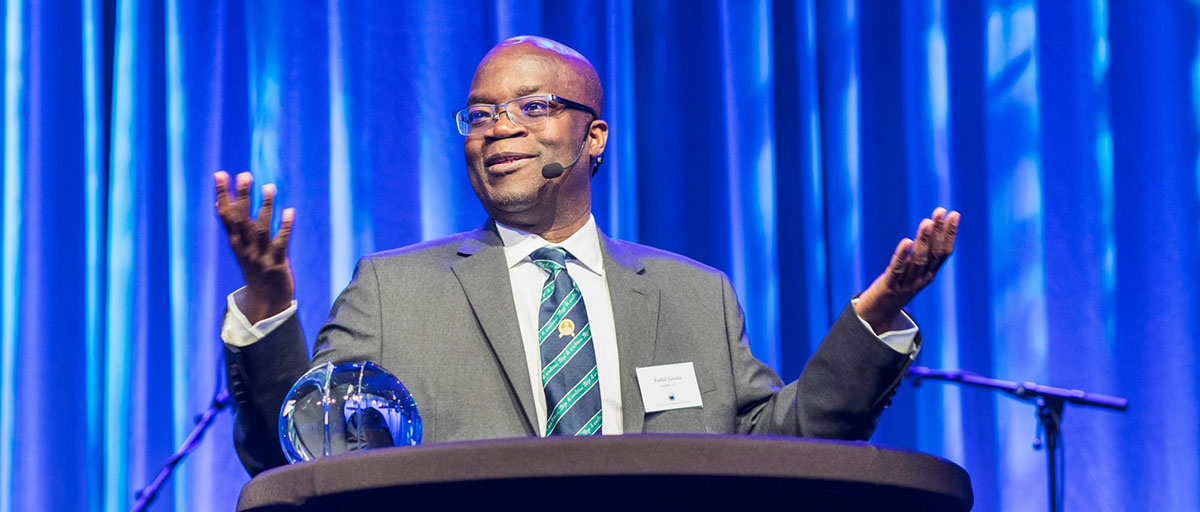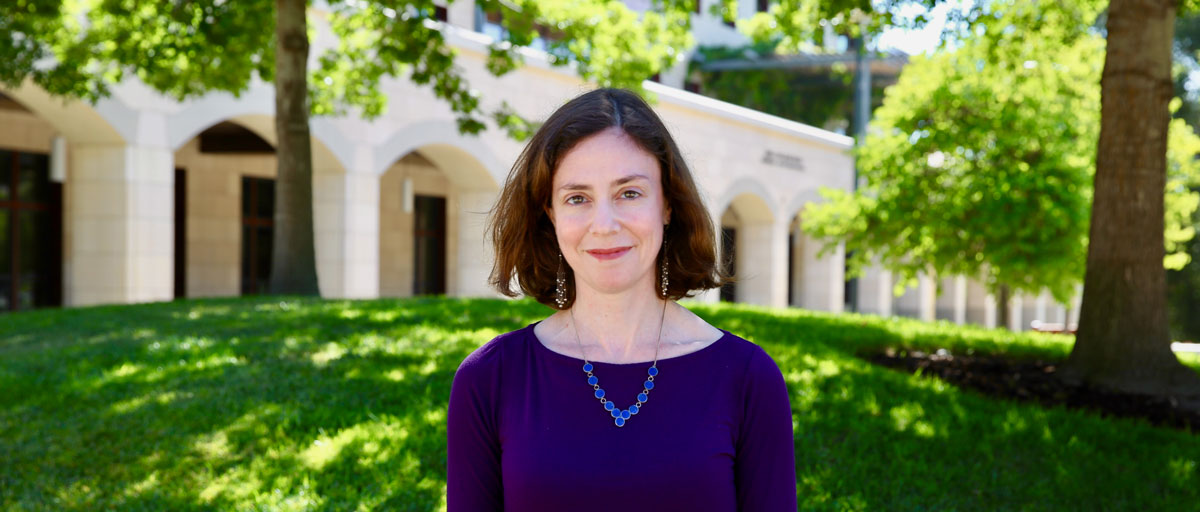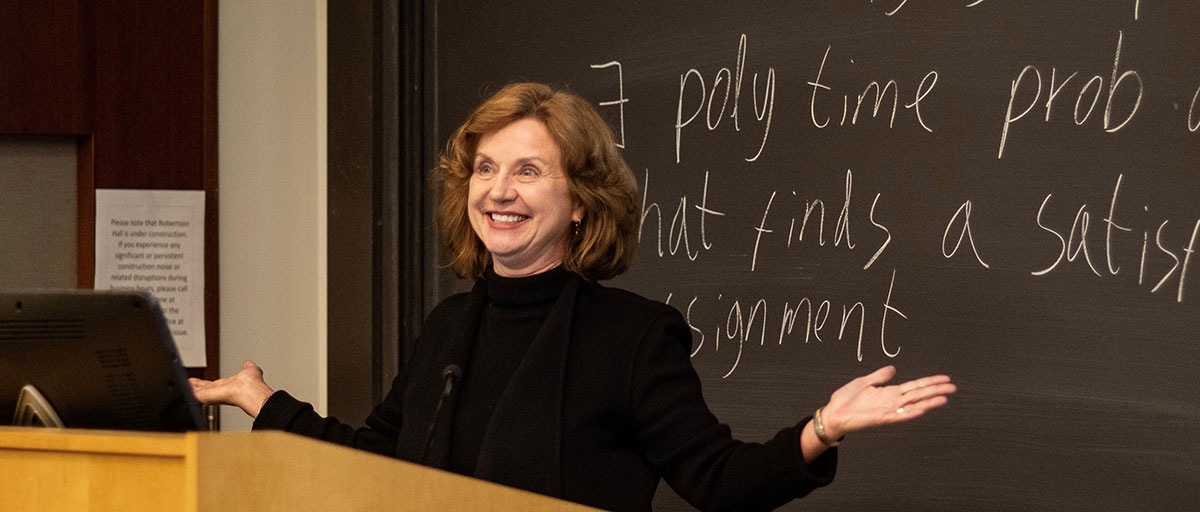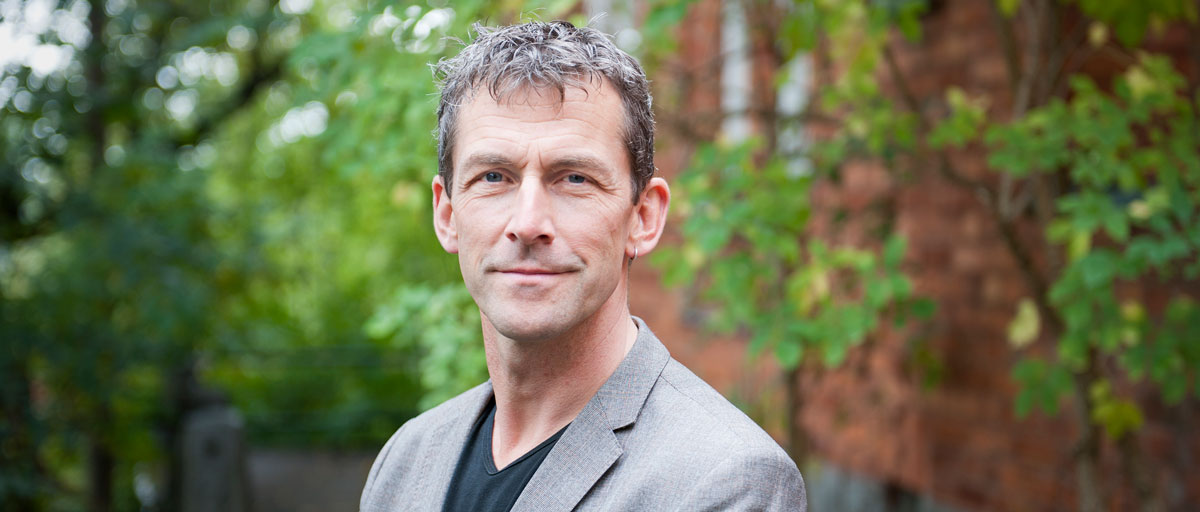Bildtext får vara max två rader text. Hela texten ska högerjusteras om den bara ska innehålla fotobyline! Photo: B. Christensen/Azote
INTRODUCING OUR SCIENTIFIC ADVISORY COUNCIL
Fishing for a sustainable ocean

Rashid Sumaila, professor at the University of British Columbia, is one of the members of Stockholm Resilience Centre's science advisory board. His work on international fisheries economics has been highly influential in the international policy sphere. Photo: Volvo Environment Prize
- The International Scientific Advisory Council (ISAC) provides strategic advice and guidance on the scientific development and direction of the Stockholm Resilience Centre
- Ussif Rashid Sumaila is professor and director of the Fisheries Economics Research Unit at the University of British Columbia
- He supports continued focus on the role of the private sector in the development of a sustainable fishing industry
The centre’s international science advisory council welcomes Rashid Sumaila, one of the world’s most innovative oceans researchers
How can we leave enough fish in the ocean, respect habitats and ensure the people who depend on fishing can maintain their livelihoods for generations to come?
With the next few years being critical for finding answers to these questions, researchers from the Stockholm Resilience Centre (SRC) are on the case, with a dedicated and brilliant scientific advisory council to guide them on their way.
Interdisciplinary research crucial
In Vancouver - about as far away as you can get from Stockholm - there’s Rashid Sumaila, professor and director of the Fisheries Economics Research Unit at the University of British Columbia, Canada.
Originally trained as a quantity surveyor, Prof. Sumaila now proudly calls himself an interdisciplinary oceans and fisheries economist.
I truly believe that most pressing global and national issues cannot be solved by one single profession.
Rashid Sumaila
He is deeply interested in how economics, through integration with ecology and other disciplines, can be used to help ensure that environmental resources are sustainably managed for the benefit of all generations.
This interest also translates into relentless activities at the science-policy interface.
Sumaila’s work on international fisheries economics has been highly influential in the international policy sphere. From the UN, African Union, OECD and World Trade Organization, to supporting the people of Ogoni in Nigeria whose fisheries were devastated by repeated oil spills, his expertise has taken him around the world.
Focus on the private sector
Although far away from Stockholm, the relationship is close. “I’ve been a keen follower of the SRC and its out-of-the-box thinking for a long time,” he says.
Looking towards the future, Sumaila has high hopes for the centre and its potential to push boundaries in the fishing industry.
“What I find particularly important is the focus on the role of big fishing companies in supporting or undermining the struggle to sustainably manage the natural environment.”
“SRC is one of the most innovative groups of sustainability researchers in the world - a group that does not fear to undertake and report on controversial studies,” he continues.
“The centre should build on its experience to dive further into the role of the private sector - fishing and processing companies, banks and insurers - in the development of a sustainable and just fishing industry”.
And what about the recent changes at the centre? Sumaila couldn’t be more positive.
“The new leadership is well qualified, highly motivated and in a good position to take SRC’s important work to new heights. I’m really looking forward to working with them and the other council members to think about how the centre can create even more positive change to the world’s oceans”.









